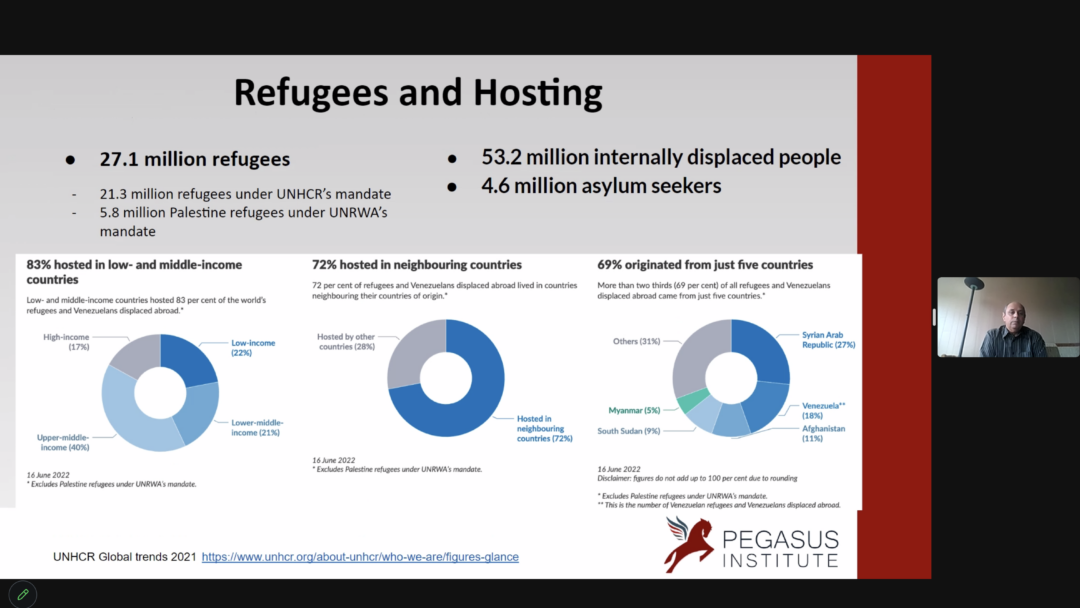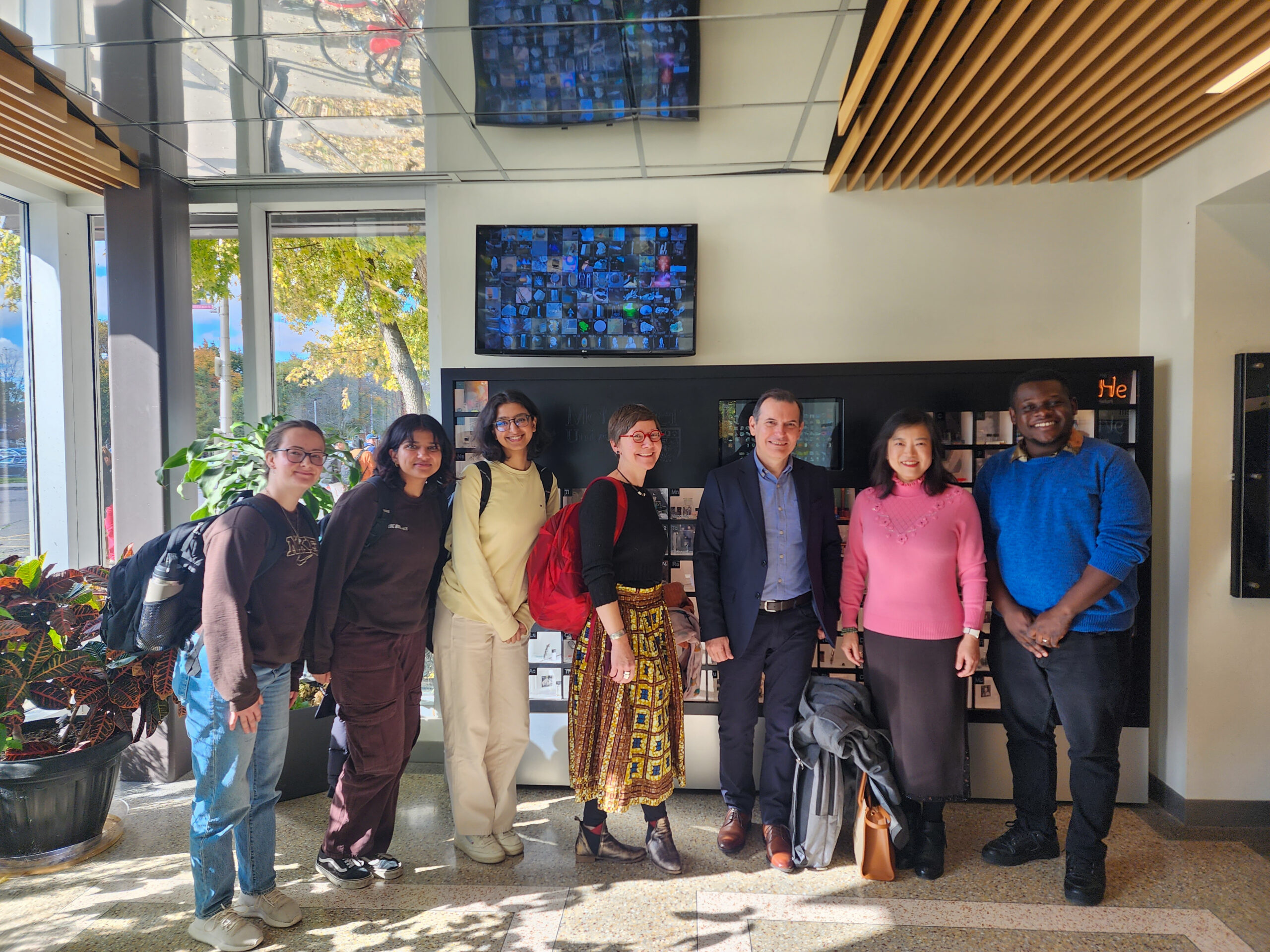Exploring the Refugee Experience in Canada: A Global Health Perspective

Image above is of Global Health Seminar Series Presenter, Dr. Neil Arya on March 5, 2024 ("Exploring the Refugee Experience in Canada: A Global Health Perspective"). The following Blog post is written by Global Health MSc student Isha Verma
“Refugees are a virtue of culture and experience and can be an asset to Canadians if supported in the right way” stated Neil Arya during March 5th’s Global Health Seminar exploring refugee health in the Canadian and global context. Arya is a family physician and the founding director of the Office of Global Health at the Schulich School of Medicine and Dentistry at Western University. As an advocate for the health of refugees in a local and global context, Arya highlighted the intersecting challenges faced by refugees, and what our global community can do to support this vulnerable population.
Drawing from his research and experience working with refugee populations, Arya emphasized the barriers that many refugees and migrants endure upon being forcibly displaced from their homes. Refugees are people who are unable or unwilling to return to their country of origin. Refugees may come to Canada for reasons ranging from war and conflict to natural disasters, or threats of persecution based on race, religion, sexuality, or other factors.
However, in being left no choice but to seek refuge in new, and often unfamiliar contexts, challenges to one’s health and well-being can emerge. Global health, a field where the social determinants of health are actively recognized, can be used to understand the intersecting factors that influence refugee health outcomes. Highlighting this holistic understanding, Arya explored the overlapping structural and systemic barriers refugees face when it comes to healthcare that impact their quality of life. His discussion emphasized the challenges of financial instability, language and cultural differences, and loss of social networks that refugees experience when entering a host country. In turn, this impacts their ability to utilize and seek healthcare and other essential resources, such as housing. Arya also pointed out how refugees often struggle with Canadian legal systems due to limited familiarity and minimal support. It is often these institutional barriers and bureaucratic difficulties that create immense difficulty and nuance for refugees seeking accessible healthcare resources.
Global health research often aims to measure the impact of these barriers on health outcomes to ultimately find and address gaps in providing appropriate support to vulnerable populations. This is one aspect that Arya utilizes through the analysis of several research articles that highlight how vulnerable refugees and migrants often face worse health outcomes than host populations. In particular, Arya focused on the disproportionate impact that COVID-19 had on refugee populations in Canada. Refugees experienced greater exposure to COVID-19 and heightened risk of infection. This can be attributed to working on healthcare frontlines, reliance on public transportation, and disruptions in immigration processes. The existing gaps are evident in the lack of support for refugees and calls for a more fluid collaboration between the leaders and communities from Canadian society.
Focusing on the interdisciplinary nature of global health, we can see how intersecting factors play a role in refugee experiences when it comes to healthcare. It is important to note that refugee’s struggles also include their quest for a sense of belonging. Arya shared a compelling and moving poem by Warsan Shire called “Home” that shed light on the difficult choice refugees make to leave behind loved ones and homes in pursuit of survival. This inspiring piece gave way for Arya to highlight the critical significance of compassion and empathy towards refugees. As discussions unfolded, the audience also shared insights on how Canada can cultivate a more nurturing and inclusive environment for refugees. In the global health community, it is imperative to acknowledge and embrace the diverse experiences and cultures refugees and migrants bring to Canada.
Arya’s presentation served catalyze reflection and action, urging all to strive for a world where every individual, regardless of their background, can find solace and belonging. In recent years, there has been a
noticeable shift in attitudes towards immigrants in Canada. Arya noted the increasing positivity towards refugees and their contributions to the economy and their embrace of Canadian values. However, there remains significant improvement for Canadian society and healthcare systems to better support these populations. To further integrate refugees into Canadian society, Arya encourages healthcare professionals to establish specialized clinics catering to refugee health needs. Additionally, he encourages students to take on advocacy roles to actively assist refugees through non-clinical means, such as community engagement and mental health support. These efforts signify a collective commitment to fostering inclusivity and support for refugees as we unite to achieve this goal as global leaders for tomorrow.
Watch “Home” by Warsan Shire.
Student BlogRelated News
News Listing

November 12, 2024

November 5, 2024

Pollution, Power, and Protest: Unpacking Environmental Racism from Africville to Wet’suwet’en
Student Blog
October 10, 2024
